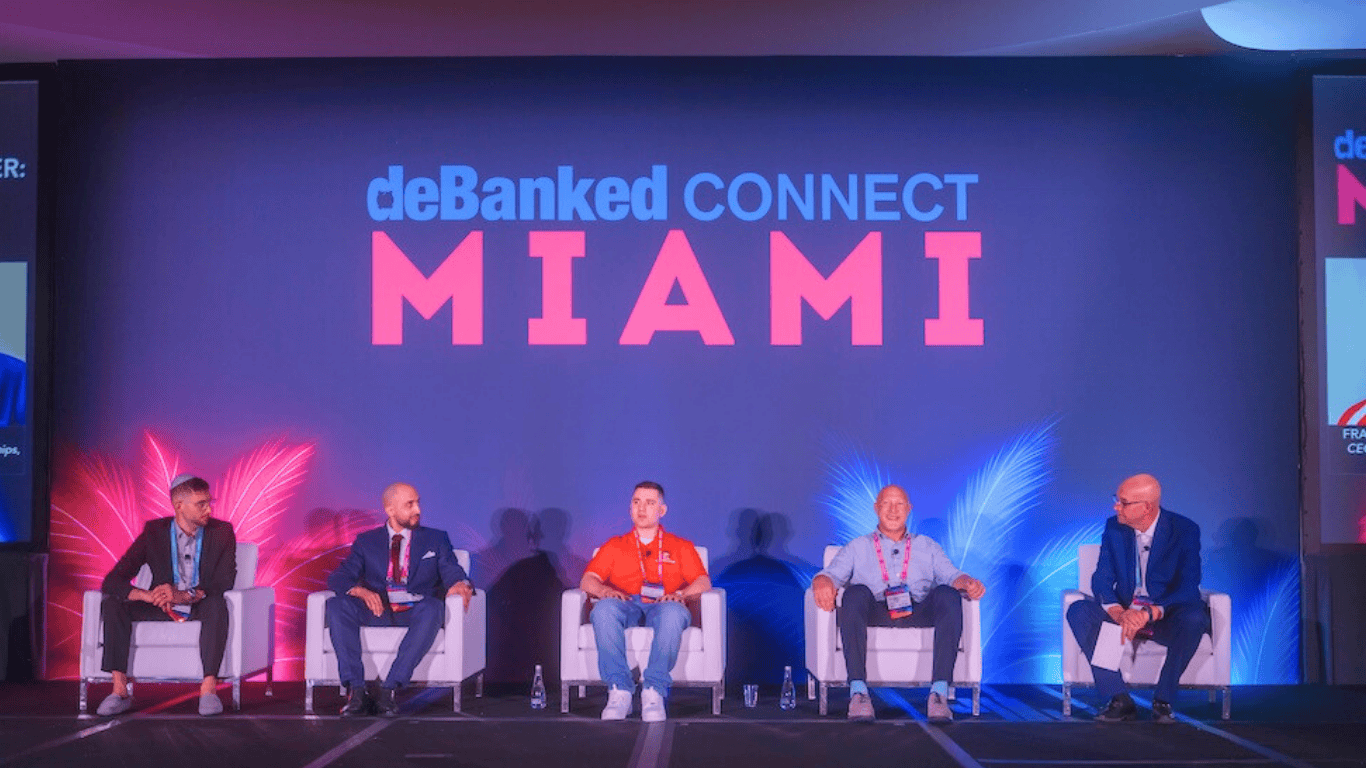The industries poised to benefit most significantly from Cobalt Intelligence's SOS API are those with a high volume of business onboarding, stringent compliance requirements, and a persistent need for robust fraud prevention. These primarily include:
1. Alternative Lenders and Traditional Banks
In the dynamic world of lending, speed, accuracy, and risk mitigation are non-negotiable. Cobalt Intelligence's SOS API offers a transformative solution for both alternative and traditional lenders.
- Automated Business Verification and Underwriting: The API allows lenders to automate the crucial business verification process, accessing real-time data directly from state databases.
- Reduced Processing Time: Manual verification processes, which once created bottlenecks and consumed hundreds of hours monthly, are transformed into instantaneous data retrieval, freeing up significant bandwidth for processing teams. This allows for handling a greater volume of loan applications without a proportional increase in staff.
- Enhanced Underwriting Efficiency: By rapidly verifying entity status, formation dates, and key personnel, lenders can accelerate underwriting decisions, ensuring swift responses to market opportunities and borrower needs.
- Improved Customer Experience: As evidenced by 1West, a leading small business financing marketplace, 25% of customers can self-service through their lending platform, never needing to speak to a company representative, thanks to automated verification processes. This frictionless experience is a significant competitive differentiator.
- Robust Fraud Detection and Risk Mitigation: The API plays a vital role in identifying and preventing fraudulent applications by cross-referencing provided information with official state records.
- Verification of Application Data: Cobalt helps verify the file data provided by customers on applications, significantly reducing the risk of fraud for lending partners and improving approval chances.
- Identification of Illegitimate Entities: By providing real-time access to business registration status, the API can flag unregistered, expired, or inactive businesses, preventing lenders from inadvertently funding non-existent or high-risk entities.
- Comprehensive Risk Assessment: Beyond basic registration, the API's ability to pull UCC filing data from 11 states instantly uncovers existing liens and financial obligations, providing a deeper insight into a business's financial health and improving the quality of risk analysis.
- Streamlined Compliance and Due Diligence (KYB/AML): Meeting stringent regulatory requirements like Know Your Business (KYB) and Anti-Money Laundering (AML) is critical, and the SOS API provides the foundational data needed.
- Primary Source Validation: The API retrieves data directly from official state Secretary of State websites, constituting primary source records, which is crucial for audit-proof evidence and regulatory adherence. This contrasts with relying on periodically updated cached databases that might miss recent changes.
- Officer and Registered Agent Verification: Access to officer, owner, and registered agent details (where available) from primary sources enhances the ability to verify key individuals associated with a business, strengthening KYB processes and fraud prevention.
- Integration with Broader Verification Ecosystem: While Cobalt Intelligence's API focuses on SOS data, it explicitly mentions existing TIN verification functionality against IRS records and potential integration with bank data aggregation services like Plaid, MoneyThumb, and Oculus, allowing for a consolidated view of applicant information and multi-source verification.
2. Fintechs (Challenger Banks and Neobanks)
Fintechs thrive on agility and seamless user experiences. The SOS API directly supports these core tenets.
- Accelerated Business Onboarding: Fintechs can leverage the API to onboard business clients or partners with unprecedented speed, maintaining their competitive edge over traditional institutions.
- Reduced Friction: By automating the verification of business legitimacy, fintechs can minimize manual touchpoints and reduce the "friction" that often frustrates new business customers. This contributes to higher conversion rates for customer acquisition.
- Scalability for High Volume: As fintechs scale, handling thousands of monthly applications becomes manageable, as the API automates lookups that previously required significant human effort.
- Agile Decision-Making: In a fast-evolving market, real-time insights from live SOS data enable fintechs to make agile decisions, adapting quickly to new business relationships and market dynamics.
- Maintaining Security and Compliance at Scale: While prioritizing speed, fintechs cannot compromise on security or regulatory objectives.
- Direct-to-Source Data: Relying on direct access to official government sources ensures the highest level of accuracy for compliance checks, surpassing reliance on potentially stale third-party aggregators.
- Automated Auditable Trails: The API can provide timestamped screenshots of SOS search results, which serve as verifiable, audit-proof evidence, crucial for regulatory scrutiny and internal record-keeping.
- Enhanced Risk Management: For example, Bectran, a credit management platform, integrated Cobalt Intelligence to enhance fraud prevention, automating SOS data pull at the moment of application submission, leading to tighter fraud security measures and faster credit approvals.
- Competitive Differentiation through AI-Powered Automation: Embracing advanced API solutions sets fintechs apart in a crowded market.
- Leveraging AI for Smarter Workflows: Cobalt Intelligence explicitly helps "Alternative Funders work smarter through AI Technology," indicating an alignment with the fintech sector's drive towards intelligent automation.
- Seamless Integration: The API is designed to be RESTful and offers comprehensive documentation, enabling straightforward integration with existing loan management systems, CRMs, and other platforms critical to fintech operations.
- Focus on Core Innovation: By automating mundane but critical verification tasks, fintech development teams can redirect their resources towards core product innovation and enhancing their unique value propositions.
3. Marketplace Administrators
Marketplaces facilitate connections between businesses, requiring robust verification to ensure trust and mitigate risk for all participants.
- Verification of Seller/Service Provider Legitimacy: Marketplace administrators need to ensure that businesses operating on their platforms are legally registered and trustworthy.
- Rapid Vetting: The SOS API allows for quick checks of applying businesses for registration documentation, ensuring they are legally allowed to operate and reducing onboarding delays for new sellers.
- Reduced Fraud Risk for Platform: By instantly identifying inactive or unregistered businesses, the API helps prevent fraudulent actors from gaining access to the marketplace and potentially defrauding customers or other businesses.
- Maintaining Platform Reputation: Consistent verification builds trust among users and strengthens the marketplace's reputation as a reliable and secure environment for commerce.
- Enhanced Due Diligence and Risk Assessment: Beyond basic legitimacy, understanding the risk profile of businesses on the platform is crucial.
- Comprehensive Business Profile: The API provides essential details such as business name, entity type, operational status, and filing history, allowing administrators to build a more complete risk profile.
- Identification of Potential Red Flags: Automated checks for inconsistencies, such as mismatched names or addresses, can flag potential issues for deeper investigation, allowing administrators to make informed decisions about who operates on their platform.
- Scalable Risk Management: As marketplaces grow, manually vetting thousands of businesses becomes impractical. The API enables scalable risk management, allowing platforms to handle increased volume efficiently.
- Streamlined Onboarding Workflows: Efficient onboarding is key to attracting and retaining businesses on a marketplace.
- Automated Information Gathering: The API automates the process of pulling business information, eliminating manual data entry and reducing human error, thus streamlining the onboarding workflow.
- Faster Activation Times: By accelerating the verification step, marketplaces can shorten the time it takes for new businesses to become active on the platform, leading to increased engagement and revenue potential.
- Seamless Integration with Existing Systems: The API's RESTful nature and comprehensive documentation simplify integration into existing marketplace management systems, minimizing development overhead and speeding up deployment.
4. Payment Service Providers (PSPs)
PSPs are on the front lines of financial transactions and require robust verification to prevent illicit activities.
- Mitigating Indirect Fraud and Illegitimate Merchants: PSPs must ensure they are not inadvertently facilitating transactions for illegitimate businesses.
- Layered Verification: The SOS API adds a critical layer of verification, cross-referencing merchant information with official state registrations to confirm legitimacy.
- Protecting Transaction Integrity: By verifying businesses upfront, PSPs reduce the risk of processing payments for fraudulent operations, safeguarding their own services and their customers.
- Proactive Risk Management: Instead of reacting to chargebacks or fraud alerts, the API enables PSPs to proactively screen merchants, reducing future operational and financial losses.
- Enhancing Onboarding Experience for Merchants: PSPs compete on ease of use and speed of activation for new merchants.
- Accelerated Merchant Setup: Automating SOS checks means merchants can get set up and start processing payments much faster, improving their overall onboarding experience.
- Reduced Manual Review: Fewer manual checks translate to a leaner operations team for PSPs, allowing them to allocate resources more strategically.
- Competitive Advantage in Merchant Acquisition: A seamless and swift onboarding process, enabled by API automation, can be a significant selling point for PSPs looking to attract high-quality merchants.
- Ensuring Compliance with Financial Regulations: PSPs operate under strict regulatory oversight, making robust compliance tools essential.
- Support for KYB/AML Programs: The SOS data is foundational for Know Your Business (KYB) and Anti-Money Laundering (AML) compliance, helping PSPs fulfill their regulatory obligations by verifying business identity and legitimacy.
- Audit Readiness: The ability to retrieve timestamped primary source documents provides an undeniable audit trail, crucial for demonstrating compliance to regulators.
- Adapting to Regulatory Changes: By having direct API access to SOS data, PSPs are better positioned to adapt to evolving regulatory requirements that may demand more granular or real-time business verification.
5. Insurance Companies
Insuring businesses is a high-stakes endeavor that requires meticulous verification to assess risk and prevent fraud.
- Verification of Business Legitimacy for Coverage: Insurers must confirm that businesses seeking coverage are real, legally operating entities.
- Accurate Underwriting: Access to real-time SOS data ensures that underwriting decisions are based on the most current and accurate information about a business's operational status and registration.
- Prevention of Fictitious Claims: By verifying legitimacy upfront, insurers can prevent policies from being issued to non-existent or fraudulent businesses, thereby mitigating the risk of future fictitious claims.
- Risk Profile Accuracy: Information like business age (filing date) can be critical for assessing risk profiles and determining appropriate policy terms and premiums.
- Fraud Prevention and Risk Assessment: Identifying and assessing the risk posed by potential clients is paramount in the insurance sector.
- Flagging Inactive Businesses: The API's ability to identify inactive or dissolved businesses prevents insurers from providing coverage to entities that are no longer operational, reducing exposure to ghost claims.
- Cross-referencing Information: Insurers can use the API to cross-reference details provided by applicants against official state records, identifying discrepancies that could indicate attempted fraud.
- Support for Investigations: In cases of suspicious activity, access to comprehensive business details, including officer information and filing history, can aid in investigations and due diligence processes.
- Operational Efficiency in Policy Issuance: Manual verification can slow down the policy issuance process, impacting customer satisfaction.
- Accelerated Policy Issuance: Automating the business verification step allows insurers to issue policies more quickly, enhancing the customer experience and potentially increasing conversion rates.
- Resource Optimization: Freeing up human resources from tedious manual lookups allows underwriting and compliance teams to focus on more complex cases and strategic risk analysis.
- Seamless Integration: The API's straightforward integration capabilities mean insurers can embed real-time SOS checks directly into their existing policy management systems, creating a more cohesive and efficient workflow.
6. Construction Industry (Contractor License Verification)
While not a direct application of the SOS API in isolation, Cobalt Intelligence offers a specific Contractor License Verification API, which is highly relevant for lenders and businesses interacting with contractors.
- Ensuring Compliance and Credibility: Doing business with unlicensed contractors exposes businesses and lenders to significant legal and reputational risks.
- Instant License Confirmation: The Contractor License Verification API provides instant access to licensing status at the state level, eliminating the need for manual searches.
- Reduced Non-Compliance Exposure: This verification ensures that businesses are operating with the required credentials, directly reducing exposure to non-compliance penalties and legal liabilities.
- Verification for Project Financing: For financial institutions, this means instantly confirming the legitimacy of contractors seeking project financing, adding a crucial layer of due diligence.
- Mitigating Financial and Reputational Risk: Funding or partnering with unlicensed entities can lead to costly disputes and damage reputation.
- Prevention of Project Delays and Cost Overruns: Unlicensed contractors may face legal issues or lack the necessary skills, leading to project delays and increased costs. Verifying licenses helps avoid these pitfalls [This is external knowledge, but a logical consequence of using the service].
- Protection for Lenders: For alternative lenders specializing in construction finance, this API provides essential assurance that their funds are going to legitimate and qualified businesses, improving the quality of their loan portfolios.
- Enhanced Due Diligence for Partnerships: Businesses engaging contractors for large projects can use this to quickly vet potential partners, ensuring they meet professional and legal standards.
- Streamlined Vendor Onboarding and Vetting: Manual license checks are time-consuming and inefficient for high-volume operations.
- Automated Workflow Integration: The API can be integrated into existing vendor management or lending platforms, automating the license verification step during onboarding.
- Scalable Verification: For large organizations that work with numerous contractors, this automation allows for efficient, high-volume checks without increasing manual workload [This is external knowledge, but a logical consequence of using the service].
- Instant Confidence in Partnerships: By confirming licenses fast, businesses and lenders gain immediate confidence in their partnerships, accelerating contracting and financing decisions.
In conclusion, Cobalt Intelligence's SOS API and its complementary verification services provide a powerful suite of tools that enable alternative business lenders and institutional executives across various industries to operate with enhanced efficiency, superior accuracy, and robust fraud prevention, all while maintaining rigorous compliance standards in an increasingly complex digital economy.




.png)







.png)